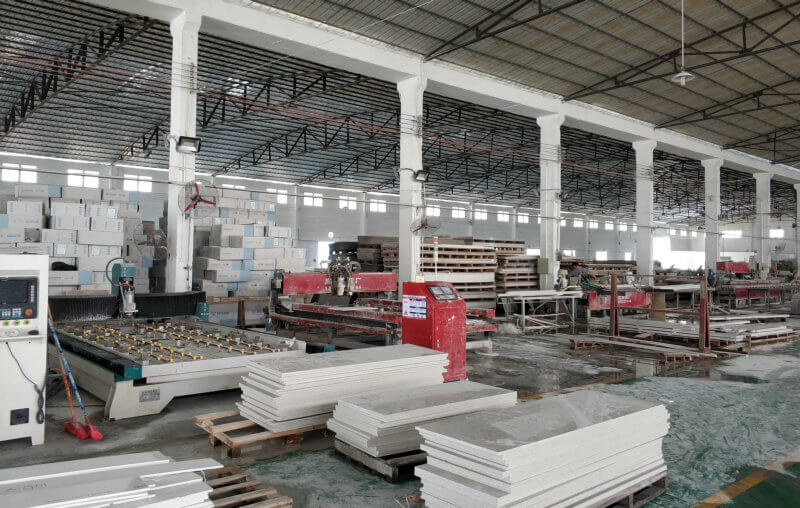
Quartz countertops have surged in popularity within modern home design due to their exceptional combination of aesthetic allure and robust durability. These surfaces enhance the visual appeal of kitchens and bathrooms and stand strong against the rigors of daily usage. This comprehensive article unveiled the intricate journey of producing these remarkable countertops. Delving into the manufacturing process, this exploration sheds light on the meticulous craftsmanship behind the scenes. So, how are quartz countertops made? Let’s journey through the meticulous artistry and technology that gives rise to these stunning and functional surfaces.
Understanding Quartz
Quartz, with its intricate mineral composition, forms the bedrock of these exquisite countertops. Renowned for its inherent hardness and captivating beauty, quartz is a mineral that lends itself perfectly to creating resilient surfaces. Composed primarily of silicon and oxygen atoms, quartz boasts remarkable durability, making it a preferred choice for various applications, from the precision workings of watches to the intricate components of electronics. Harnessing the innate strength and elegance of quartz, countertop manufacturers have perfected the art of infusing these characteristics into the heart of their creations, ensuring that the resulting surfaces stand as enduring testaments to nature’s craftsmanship.
The Manufacturing Process
The journey of crafting quartz countertops begins with the foundational question: how are quartz countertops made? The process commences with the extraction of raw quartz from mines and quarries, where it resides in its natural state, boasting remarkable hardness and visual appeal. This raw material is subjected to a meticulous sequence of steps transforming into elegant surfaces adorning modern homes.
The extracted quartz undergoes a fascinating metamorphosis as it is meticulously crushed and blended with resins and pigments, culminating in a distinctive mixture that forms the basis of these countertops.
Benefits of Quartz Countertops
Quartz countertops offer many advantages that elevate them to the forefront of modern home design. Their non-porous nature ensures resistance to stains, making them easy to maintain and ensuring their longevity. This attribute also renders them exceptionally hygienic, a crucial characteristic for kitchen environments where cleanliness is paramount. These surfaces effortlessly combine functionality with aesthetics, providing homeowners a harmonious blend of form and function that enhances their living spaces’ visual appeal and practicality.
Comparison with Other Countertop Materials
Their unique qualities shine when comparing quartz countertops to natural stone and other engineered surfaces. Unlike natural stone, quartz countertops boast color consistency throughout, eliminating variations that can occur in stone. This trait aligns seamlessly with contemporary design sensibilities. Additionally, the durability of quartz is unparalleled, ensuring that these surfaces withstand the test of time with minimal maintenance. This combination of aesthetic appeal, practicality, and robustness firmly positions quartz countertops as a standout choice in home design.
Conclusion
In unraveling the intricacies behind the question “How are quartz countertops made,” a journey of artistry and innovation comes to light. The process, from raw extraction to flawless finish, embodies precision and eco-friendliness. Quartz countertops’ benefits, such as durability, hygienic surfaces, and unmatched aesthetics, echo their growing popularity in modern interior design.
